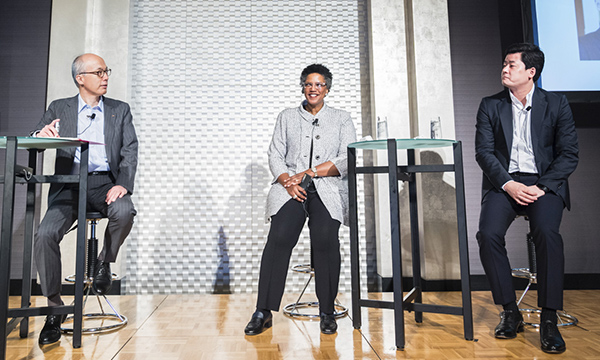Innovation is the cornerstone of progress, and effective leadership is essential for fostering innovation. Innovative Leadership is those who are able to identify opportunities for improvement, generate new ideas, and create an environment that encourages creativity and risk-taking. In this article, we will explore what it means to be an innovative leader and the characteristics that are necessary for success.
Defining Innovative Leadership
Innovative leadership is about inspiring and empowering people to think differently and challenge the status quo. It involves being open-minded, creative, and adaptable in the face of change. An innovative leader is not afraid to take calculated risks, experiment with new ideas, and learn from failures. They encourage their team to do the same, creating a culture of innovation that drives growth and success.
Innovative leaders also understand
The importance of collaboration and communication. They know that innovation requires diverse perspectives and ideas, and they actively seek out input from others. They are skilled at building relationships and trust, creating a sense of shared purpose and vision. They also know how to effectively communicate their ideas and inspire others to take action.
Characteristics of Innovative Leaders
- Visionary Thinking: Innovative leaders are able to think beyond the present and envision a future that is different from the present. They have a clear understanding of where they want to go, and they are able to communicate this vision to their team. They use this vision to guide their decision-making and inspire others to take action.
- Creative Problem Solving: Innovative leaders are skilled at identifying problems and finding creative solutions. They are not afraid to think outside the box and consider unconventional approaches. They encourage their team to do the same, creating an environment that fosters innovation and experimentation.
- Risk-Taking: Innovative leaders are willing to take calculated risks and try new things. They understand that failure is a necessary part of the innovation process and are not deterred by setbacks. They use failures as learning opportunities and use this knowledge to refine their approach.
- Adaptability: Innovative leaders are able to adapt to changing circumstances and embrace new opportunities. They are not rigid in their thinking and are willing to pivot when necessary. They are able to manage ambiguity and uncertainty, using these challenges as opportunities for growth.
- Emotional Intelligence: Innovative leaders are skilled at building relationships and connecting with others. They are empathetic and able to understand the needs and perspectives of others. They use this understanding to build trust and create a sense of shared purpose and vision.
- Curiosity: Innovative leaders are naturally curious and interested in learning new things. They ask questions and seek out new information, constantly expanding their knowledge and understanding. They encourage their team to do the same, creating a culture of continuous learning and improvement.
- Collaboration: Innovative leaders understand the importance of collaboration and teamwork. They know that innovation requires diverse perspectives and ideas, and they actively seek out input from others. They are skilled at building relationships and trust, creating a sense of shared purpose and vision.
- Communication: Innovative leaders are skilled communicators, able to effectively communicate their ideas and inspire others to take action. They are able to adapt their communication style to different audiences and situations, ensuring that their message is understood and acted upon.
How to Foster Innovative Leadership
Create a Culture of Innovation
Innovative leadership starts with creating a culture of innovation. This means encouraging creativity, experimentation, and risk-taking. It also means celebrating successes and learning from failures. Leaders should set the tone by modeling these behaviors and encouraging their team to do the same.
Foster Collaboration and Communication
Innovation requires diverse perspectives and ideas, and this requires effective collaboration and communication. Leaders should create opportunities for team members to share their ideas and provide feedback. They should also encourage open and honest communication, creating an environment where everyone feels comfortable sharing their thoughts and opinions.

